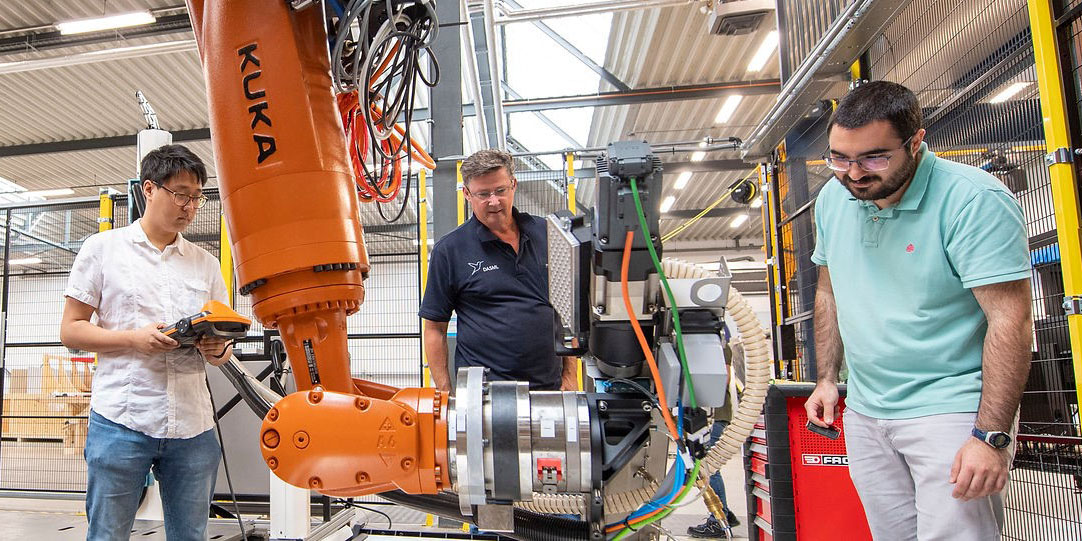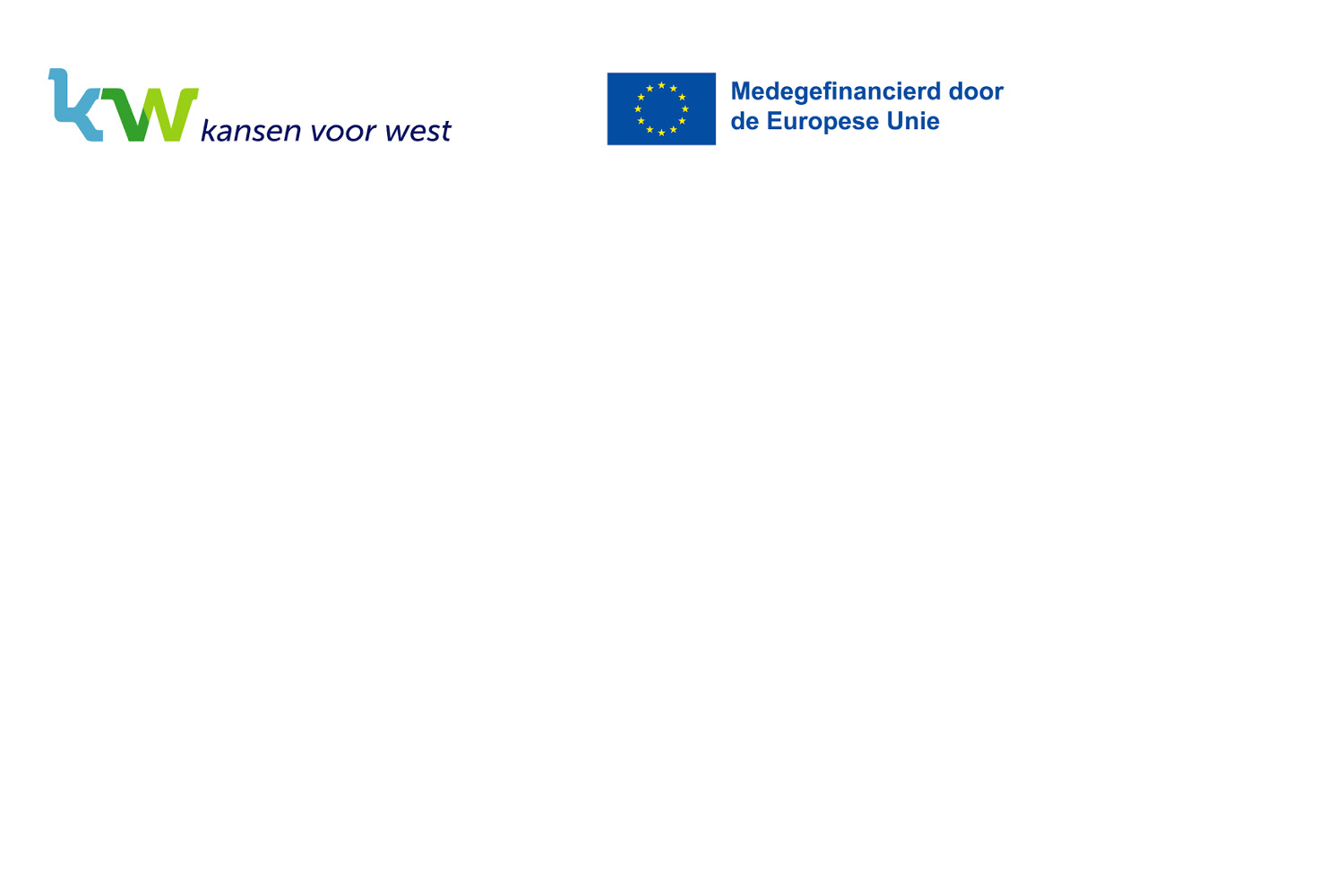SAM|XL continues with higher professional education and SMEs: Digitalisation and automation in the manufacturing industry
This project offers a solution to one of the most persistent obstacles to the growth of the manufacturing industry in the west of the Netherlands: the shortage of qualified staff.
Centre of Expertise Digital Operations & Finance

This project offers a solution to one of the most persistent obstacles to the growth of the manufacturing industry in the west of the Netherlands: the shortage of qualified staff. This problem has existed for years and is only threatening to get worse due to the combination of three factors: the rapid growth of the manufacturing industry, the retirement wave of many baby boomers and the limited inflow from educational institutions. Digitalisation and automation offer opportunities to produce more with less manpower while using less energy and material. But there is no staff to implement and maintain these steps.
Fieldlab
The SAM|XL Fieldlab trains lecturers and students in robotics and automation. This Fieldlab is a collaboration of two higher professional education institutions: The Hague University of Applied Sciences and InHolland University of Applied Sciences. Within the Fieldlab, practice-based projects are carried out with companies, often resulting in a job guarantee for students.
At the same time, the Fieldlab supports companies in digitising their own business, preferably in the production chains they are forming part of. Thus, we build on previous regional investments such as SMITZH (Province of South Holland and MRDH) and CADC (Chances for West II) and the ideas of EDIH-SMITZH (Province of South Holland, the Ministry of Economic Affairs and Climate and the EU). Doing so, we strengthen the financial base of the innovation infrastructure already set in place, with the higher goal of strengthening a regional, sustainable, circular manufacturing industry that can produce what we need regionally.
Collaboration
The following partners are involved in this project:
- SAM|XL is the initiator. It is an existing Fieldlab and a centre of expertise for automation in the manufacturing industry, providing a unique link between faculties of the TU Delft, industry and suppliers. SAM|XL develops software and hardware to improve the intelligence, connectivity and flexibility of industrial robots.
- InHolland is project partner. It is an institution providing higher professional education (and research) in Aeronautical and Precision Engineering.
- TU Delft is project partner. This university is a leader in the area of Aerospace Engineering and research in Robotics/AI.
- The Hague University of Applied Sciences is project partner. It is an institution providing higher professional education (and research) in the fields of Smart Sustainable Manufacturing, Smart Sensor Systems and Systems Engineering.
Objective
The project objective is fully in line with the ideas of SMITZH and the DIGITALZH by establishing close collaboration with institutions for higher professional education, Fieldlabs and companies that will benefit all parties involved:
- SMEs get access to more knowledge, projects, facilities, specialists and students;
- Mutual knowledge exchange between the Fieldlab, companies and institutions for higher professional education ensures that the knowledge level of the researchers and the curriculum for higher professional education remains current;
- The Fieldlab gains more insight into practical issues that SMEs are confronted with, allowing Fieldlab to better tailor its offerings. Within this collaboration, there is a strong focus on sustainability, both through weight reduction and digital traceability of materials and products.
Results
The Smart Sustainable Manufacturing research group holds a central position within the work package aimed at activating collaboration with SMEs. Within this framework, three outcomes are pursued:
The Smart Sustainable Manufacturing research group holds a central position within the work package aimed at activating collaboration with SMEs. Within this framework, three outcomes are pursued:
- SME needs analysis
Making an inventory of the needs that SMEs have in the field of automated manufacturing, through scans and interviews in collaboration with DIGITALZH. This will be carried out at companies from the joint relationship database of InHolland, TU Delft, The Hague University of Applied Sciences and project partners of SAM|XL. This is supplemented by suggestions from industry associations. - Defining services for SMEs
Organising previously realised offerings according to a reference model for production automation. Consider modules and open-source developments by SAM|XL, suppliers, start-ups, researchers and students of universities and universities of applied sciences. The reference model unlocks existing robotic solutions (from SAMXL, The Hague University of Applied Sciences, and from the literature) and offers the opportunity to combine them into new solutions.
Presenting this offer to SMEs in the form of a catalogue, making it visible and findable in an attractive way.
Offering best practices and/or methods in the public domain. - Developing SME projects
Gaps will be identified when surveying SME queries against the catalogue offerings. These gaps require the development of new knowledge and modules. Within these results, work is carried out for drawing up concrete project proposals.
Contact
- Jenny Coenen, lector Smart Sustainable Manufacturing, [email protected]
- Mirjam Zijderveld, senior lecturer in Technical Business Administration, [email protected]
- Henk van der Burgh. researcher Smart Sustainable Manufacturing research group, [email protected]
